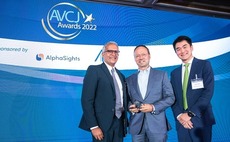
AVCJ at 25: David Gross-Loh & Jim Hildebrandt of Bain Capital
David Gross-Loh and Jim Hildebrandt, managing directors at Bain Capital, guided the firm’s Japan-heavy Asia portfolio through the global financial crisis. Acting fast without overreacting was central to their approach
As the financial crisis cut a swath through global markets, Bain Capital Asia's first instinct was to put people on the ground. The Japanese economy was the worst hit in the region - a mid-2000s recovery rapidly unwound as exports collapsed, sending the country into recession by the third quarter of 2008 - and it accounted for the private equity firm's three largest deals. It was logical that the work start there.
Asia portfolio executives, who are permanently embedded with companies to assist the management teams, were redeployed to trouble spots. There was also the option of re-tasking deal team members - given the economic uncertainty they were of course less busy - to supporting roles. A private equity executive that previously spent only 25% of his time improving companies suddenly saw that percentage rise to 50%, 75% or more.
"We sent in a lot of people quickly to look at changes in direction and focus on cost opportunities, that was a huge advantage," says David Gross-Loh, the Bain Capital managing director who set up the firm's Japan office in 2006 and still runs it. "At one point with D&M we had 10-12 people on the ground, and not just in Japan because it's a global business."
D&M, a provider of premium audio and visual equipment, was acquired by Bain for about JPY47.6 billion (then $430 million) earlier in 2008, the transaction closing a matter of days before Lehman Brothers collapsed. Selling mostly into the US and Europe, the company inevitably struggled.
The initial challenge was realigning cost structures that had been drawn up on the basis of a growth strategy, which now clearly wasn't going to come to fruition in the short- to medium-term. D&M reduced costs by about $100 million over 12 months with one eye on consolidating a business that was put together through acquisitions - Denon was spun out from Nippon-Colombia in 2001 and merged with Marantz a year later - but had never been fully integrated.
"The whole goal was to manage costs and manage cash flow, so that we could ride the downturn and emerge as one of the players that had continued to participate in R&D and had good products for when the market came back, says Gross-Loh. "It pretty much played out the way we thought it would."
The crisis in perspective
The other Japanese portfolio companies didn't suffer as much. Payment systems provider MEI operated in business-to-business channels so was less affected by the drop in discretionary spending while communications equipment specialist Suntel required a small amount of surgery. Bain sold off the company's leasing business in order to pay down debt and introduce a more conservative capital structure, thereby de-risking the investment.
The remainder of the private equity firm's Asia portfolio was dominated by China and these companies also experienced relatively little hardship. Advertising player Sinomedia Holding and shopping mall operator Jinsheng Group were hit by a decline in media spending and real estate investment, respectively, but the impact was fairly mild.
Jim Hildebrandt, a Hong Kong-based managing director at Bain, notes that, while the Asian financial crisis "was clearly happening to us and, in the end, only to us, this one was happening somewhere else. It was coming from developed markets and affected emerging markets later."
In this sense, the risk factor was misjudging the severity of the crisis on individual markets and companies. It was difficult for managers to predict, for example, that China's downturn would last 1-2 quarters as opposed to a 5-10 year fallow period in the US. This uncertainty could potentially feed into restated top-line revenue profiles. "The danger was overreacting to the downturn and not continuing to invest in growth companies," Hildebrandt adds.
Much the same applied to getting back into the market. Would uncertainty over the macroeconomic climate cause private equity firms to restrain themselves and, as a result, miss out on attractive assets? Having announced D&M in June 2008, Bain waited about a year for its next deal, the acquisition of a minority stake in Chinese electronics retailer Gome for $234 million. There was an 18-month wait for another Japan transaction, the $1 billion buyout of e-commerce firm Bellsystem24 in late 2009.
Hildebrandt doesn't read much into the gap in China - pointing out that it takes 12-18 months to get a deal done there - but activity in Japan was muted because more time had to be spent working with portfolio companies and ensuring business stability.
A cautious attitude
What worked in the firm's favor was its relatively short history in Asia. Bain opened its first office in the region in 2005; its first investment - MEI - came in mid-2006; its $1 billion debut regional fund was launched later the same year. The portfolio wasn't that big, which arguably meant the firm was better positioned to see new deals.
Bain was also wary of getting involved in highly priced and highly leveraged transactions during the boom of 2006-2007 that preceded the financial crisis. Gross-Loh recalls passing on a number of deals due to concerns about valuation and structure, adding that private equity in Japan only really got started in 2000 and unsustainable exuberance is common in the early stages of a market.
"The flip side of the economy being in a tough position is there are many interesting investment opportunities, Gross-Loh says. "We were cautious pre-downturn and then became very active. There was a notion that pricing was getting high, leverage levels were getting high on a global basis, so we were cautious. If you look at all the capital we have deployed in Asia, it might be 13% was deployed pre-crisis and the rest post-crisis."
Two years after Bellsystem24 became Bain's largest ever deal in Japan, the record was broken again with the acquisition of restaurant operator Skylark for $2 billion plus debt. The sellers were among those who got caught up in the euphoria of 2006-2007. Nomura Principal Finance and CVC Capital Partners bought the company for approximately JPY280 billion (then $3.19 billion) in 2006. Skylark was restructured in 2008, with Nomura putting in more equity, and then CVC exited its holding to Chuo Mitsui the following year in a debt-for-equity swap.
Bain's acquisition structure featured a lower price and lower leverage, and the development plan for the company is rooted in a back-to-basics approach prior to targeting the growth that the market might be able to offer. The action points include in-store operational improvement and introducing marketing practices that proved effective in portfolio restaurant businesses elsewhere in the world.
"Strategically, it's more aligned with the things we are trying to do in Japan - taking good companies and helping them improve their fundamentals," says Gross-Loh. "It is a country of slow growth and undermanaged businesses. If you look at any metric of profitably, Japanese companies are way below their peers. We tend to be very value-oriented operationally-focused, so we see companies like Skylark as a big opportunity."
Geographies of interest
There were more than 20 transactions in Bain's first Asia fund, 10 of them in China and seven in Japan. The second fund closed earlier this year and, at $2.3 billion, it is more than twice the size of its predecessor. Southeast Asia is expected to feature more prominently while India and Australia - where investments so far have been made via Bain's global fund - are to be brought more under the regional umbrella. The private equity firm continued to recruit throughout the downturn in order to meet these broader demands.
China will remain the biggest part of the business - Hildebrandt sees China and India as well suited to Bain's operational focus - but there is a sense that capital will be deployed more broadly. "Investors went through a period of 5-10 years where China was everything in Asia and we are now moving past that to a more balanced view, he adds. "Each of these markets goes through cycles and they don't necessarily align, so you'll get more interesting opportunities in some markets than others in a given year."
Bain followed the Skylark deal with the acquisition of a 50% stake in Japanese television shopping platform Jupiter Shop Channel for $1 billion, forming a joint venture with the company's owner, Sumitomo Corporation. Gross-Loh expects more investments to follow, noting that the country strategy hasn't changed much since he first drafted it in 2005. He argues that if you look past the headlines declaring demographic gloom - based on the current trajectory, more than 40% of the population will be aged over 65 by 2060 - Japan's economic statistics are not so different from many European countries.
What private equity firms need to thrive, however, is staying power, and a willingness to ride out economic difficulties if and when they emerge.
"Japan is one of those markets where you have to build deep relationships," Gross-Loh says. "You can't really say ‘I'm going to play in the market in 2006 and if it isn't interesting for a couple of years then I'll base my guys in Hong Kong and they'll fly in. The banks don't like it, management teams don't like it. In many ways, you are either viewed as a player who is committed to the market and who the institutions can trust, or you're not."
Latest News
Asian GPs slow implementation of ESG policies - survey
Asia-based private equity firms are assigning more dedicated resources to environment, social, and governance (ESG) programmes, but policy changes have slowed in the past 12 months, in part due to concerns raised internally and by LPs, according to a...
Singapore fintech start-up LXA gets $10m seed round
New Enterprise Associates (NEA) has led a USD 10m seed round for Singapore’s LXA, a financial technology start-up launched by a former Asia senior executive at The Blackstone Group.
India's InCred announces $60m round, claims unicorn status
Indian non-bank lender InCred Financial Services said it has received INR 5bn (USD 60m) at a valuation of at least USD 1bn from unnamed investors including “a global private equity fund.”
Insight leads $50m round for Australia's Roller
Insight Partners has led a USD 50m round for Australia’s Roller, a venue management software provider specializing in family fun parks.








